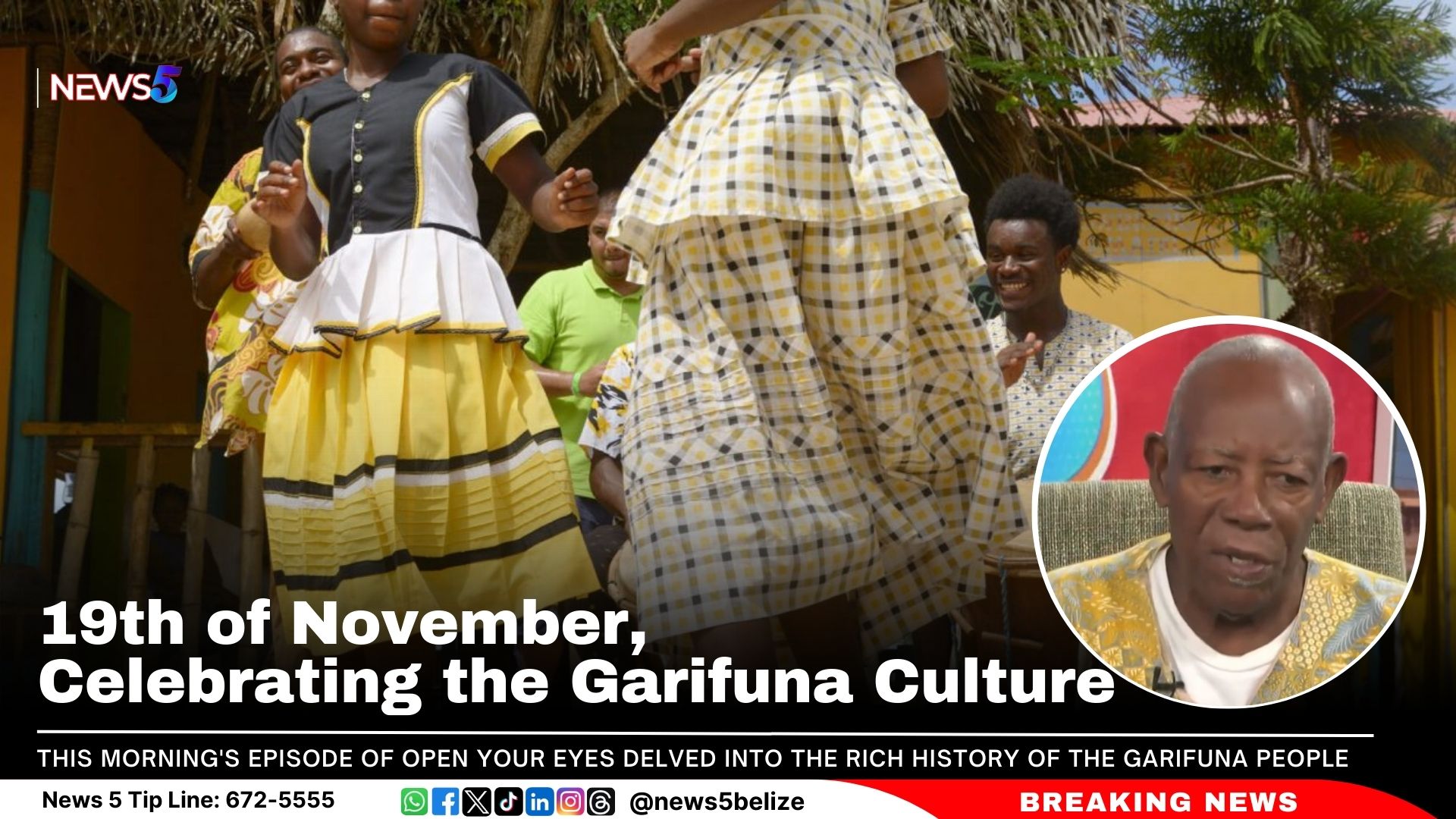One of the most anticipated and celebrated days every year in Belizean culture is November 19th, with many counting the days to celebrate one of the richest cultures in Belize. This morning’s episode of Open Your Eyes delved into the rich history of the Garifuna people, from their origins in Saint Vincent to their settlement across Central America. “Garifuna is a person comprised of three groups: the Amerindian Arawak, the Carib, and the African,” explained Sebastian Cayetano, a local Garifuna leader.
The Africans, hailing from countries like Nigeria and Ghana, and the indigenous Arawaks and Caribs originally settled in the Caribbean before European colonization. According to Cayetano, the Garifuna people were exiled by the British in 1797, with 5,000 survivors sent to the island of Balliceaux, where half perished. Later, they were relocated to Roatan, Honduras, marking the start of their diaspora in Central America, including Guatemala and Belize. Over time, their language and culture faced attempts at suppression, particularly after British colonisation banned the Garifuna language and practices.
In Belize, however, the Garifuna people slowly integrated and became vital contributors to society, particularly in education. They eventually gained acceptance through their community contributions.
“We were not accepted at first…we imposed ourselves,” said Cayetano.The Garifuna community now celebrates their heritage proudly, particularly during Garifuna Settlement Day, which marks their arrival in Belize. This holiday, officially recognised in 1977, honours the Garifuna people’s resilience and cultural contributions.
Today, efforts to preserve the Garifuna language and traditions continue through initiatives like the Battle of the Drums and Yurumein, a re-enactment of the Garifuna people’s arrival. The Yurumein celebrations will take place in both Belize City and Dangriga.
